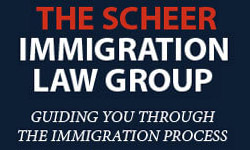Adjustment of Status for Outstanding Researchers and Professors in New Jersey: EB-1B Cases
Adjustment of status for outstanding researchers and professors in New Jersey under the EB-1B category is a significant step in obtaining lawful permanent residence in the United States. This process is designed for individuals who have demonstrated exceptional achievements in their fields of experience and who wish to continue their work in the United States. Navigating the intricacies of this process can be daunting, but for those who qualify, the EB-1B visa offers a direct path to permanent residency without the need for labor certification. Understanding the qualifications, documentation, and process involved is crucial for a successful application.
Understanding the EB-1B Category
The EB-1B visa is part of the Employment-Based First Preference category, specifically tailored for outstanding professors and researchers. This category is reserved for individuals who have achieved national or international recognition for their work. Unlike other employment-based categories, the EB-1B does not require a labor certification, which means that the process can be faster and more straightforward for those who qualify. However, the criteria for this visa are stringent, and applicants must provide substantial evidence of their accomplishments and ongoing contributions to their field.
To qualify for the EB-1B category, applicants must meet several key requirements. Firstly, they must be recognized as outstanding in their academic or research field. This recognition can come in various forms, such as awards, publications, citations, and participation in judging the work of others in the same field. Additionally, the applicant must have at least three years of experience in teaching or research in their field. This experience must be evidenced through documentation such as employment records, letters from colleagues, and contracts.
Another important requirement is that the applicant must have a permanent job offer from a U.S. employer. The job offer must be for a tenure-track teaching position, a comparable research position, or a permanent research position in an organization that employs at least three full-time researchers. The employer must also demonstrate that they have a history of achieving significant accomplishments in their research field. This requirement ensures that the applicant will be contributing to the academic or research community in a meaningful way.
The Application Process
The application process for an EB-1B visa involves several steps, each requiring careful attention to detail. The first step is for the employer to file Form I-140, the Immigrant Petition for Alien Workers, on behalf of the applicant. This form serves as a request to the U.S. Citizenship and Immigration Services (USCIS) to classify the applicant as a beneficiary of the EB-1B category. Along with Form I-140, the employer must submit supporting documentation that demonstrates the applicant’s qualifications and the employer’s ability to provide a permanent job offer.
Supporting documentation is a critical component of the EB-1B petition. The documentation must include evidence of the applicant’s outstanding achievements, such as copies of their published work, citations of their research, awards and honors they have received, and letters of recommendation from prominent figures in their field. These letters should detail the applicant’s contributions to the field, their impact on the work of others, and their potential for future contributions. The employer must also provide documentation that supports their own qualifications, such as records of past research accomplishments and evidence of their commitment to the applicant’s role.
Once the I-140 petition is filed, the USCIS will review the application and supporting documents. This review process can take several months, depending on the workload of the USCIS and the complexity of the case. If the petition is approved, the applicant can proceed to the next step in the process, which is the adjustment of status.
Adjustment of Status
Adjustment of status is the process by which an individual changes their immigration status from a nonimmigrant visa holder to a lawful permanent resident without having to leave the United States. For EB-1B applicants, this process involves filing Form I-485, the Application to Register Permanent Residence or Adjust Status. The I-485 application is submitted to the USCIS along with additional supporting documentation that demonstrates the applicant’s eligibility for permanent residence.
The I-485 application requires the applicant to provide personal information, such as their current immigration status, employment history, and any criminal history. In addition to this form, the applicant must submit evidence of their identity, such as a passport and birth certificate, as well as documentation that supports their eligibility for adjustment of status. This documentation includes the approval notice for the I-140 petition, proof of the applicant’s continuous residence in the United States, and evidence of their ongoing employment in their field.
The adjustment of status process also includes a background check, which involves fingerprinting and a review of the applicant’s criminal and immigration history. This step is critical in ensuring that the applicant does not pose a security risk to the United States. Additionally, the applicant may be required to attend an interview with a USCIS officer. During this interview, the officer will review the applicant’s case and may ask questions about their work, their background, and their intentions in the United States. It is important for the applicant to be well-prepared for this interview and to provide honest and accurate answers to all questions.
If the I-485 application is approved, the applicant will be granted lawful permanent resident status and will receive a green card. This green card allows the individual to live and work in the United States indefinitely, with the possibility of applying for U.S. citizenship in the future. For many outstanding researchers and professors, obtaining a green card through the EB-1B category is a significant milestone in their careers, as it provides stability and security for themselves and their families.
Attorney Susan W. Scheer attended Douglass College at Rutgers University and received her B.A. in 1974. She attended Georgetown University to get her M.A.T. in 1977 and went on to receive her J.D. from Georgetown as well in 1982. Susan is admitted to practice in New Jersey and before the United States Supreme Court.
Susan speaks Spanish, French, Hebrew, and Portuguese.
Challenges and Considerations
While the EB-1B category offers a direct path to permanent residence, the process is not without its challenges. One of the most significant challenges is providing sufficient evidence to meet the high standards set by the USCIS. Applicants must demonstrate not only their past achievements but also their potential for continued contributions to their field. This requires a thorough and well-documented application, with strong letters of recommendation and detailed evidence of the applicant’s work.
Additionally, the timing of the application is an important consideration. The adjustment of status process can take several months or even years, depending on the workload of the USCIS and the specific circumstances of the case. Applicants should be prepared for potential delays and should ensure that their immigration status remains valid throughout the process. This may involve renewing their nonimmigrant visa or obtaining work authorization while their adjustment of status application is pending.
It is also important to consider the potential impact of changes in employment on the adjustment of status process. If an applicant’s job offer is withdrawn or if they change employers during the process, it could affect their eligibility for the EB-1B category. In such cases, the applicant may need to file a new I-140 petition with their new employer or explore alternative immigration options. It is essential to consult with an experienced immigration attorney to navigate these complexities and to ensure that the application process proceeds smoothly.
What are the Requirements to File for U.S Citizenship?
Including Your Spouse and Children in a Green Card Application
Working While an Adjustment Application is Pending
The Role of an Immigration Attorney
Given the complexities involved in the adjustment of status process for EB-1B cases, it is highly advisable to seek the guidance of an experienced immigration attorney. An attorney can provide valuable assistance in preparing the I-140 petition, gathering and organizing supporting documentation, and navigating the adjustment of status process. They can also provide advice on maintaining valid immigration status, responding to requests for additional evidence from the USCIS, and preparing for interviews.
An immigration attorney can also help applicants understand their rights and options throughout the process. For example, if an applicant faces challenges in meeting the criteria for the EB-1B category, an attorney can advise on alternative immigration options, such as the EB-2 National Interest Waiver or other employment-based categories. Additionally, an attorney can provide representation in case of appeals or litigation if the USCIS denies the petition or adjustment of status application.
For outstanding researchers and professors seeking to obtain permanent residence through the EB-1B category, the experience and guidance of an immigration attorney can be invaluable. By working with an attorney, applicants can increase their chances of success and achieve their goal of living and working in the United States as lawful permanent residents.
The adjustment of status process for outstanding researchers and professors in New Jersey under the EB-1B category is a critical pathway to obtaining permanent residence in the United States. This process requires a thorough understanding of the qualifications, documentation, and procedures involved. While the journey may be complex, the rewards of securing a green card and the ability to continue contributing to your field in the United States are significant.
At The Scheer Immigration Law Group, we understand the challenges and opportunities that come with pursuing an EB-1B visa. Our experienced team is dedicated to guiding outstanding researchers and professors through the adjustment of status process with personalized support and legal advice. If you are considering applying for an EB-1B visa or need assistance with your adjustment of status application, we invite you to contact us today. Together, we can help you achieve your goal of obtaining permanent residence in the United States and continuing your valuable work in your field.


 From the initial consultation to the successful resolution of my case, their commitment to excellence was evident. Scheer Immigration Law Group not only provided legal expertise but also exhibited a genuine concern for my well-being throughout the journey.
From the initial consultation to the successful resolution of my case, their commitment to excellence was evident. Scheer Immigration Law Group not only provided legal expertise but also exhibited a genuine concern for my well-being throughout the journey.





